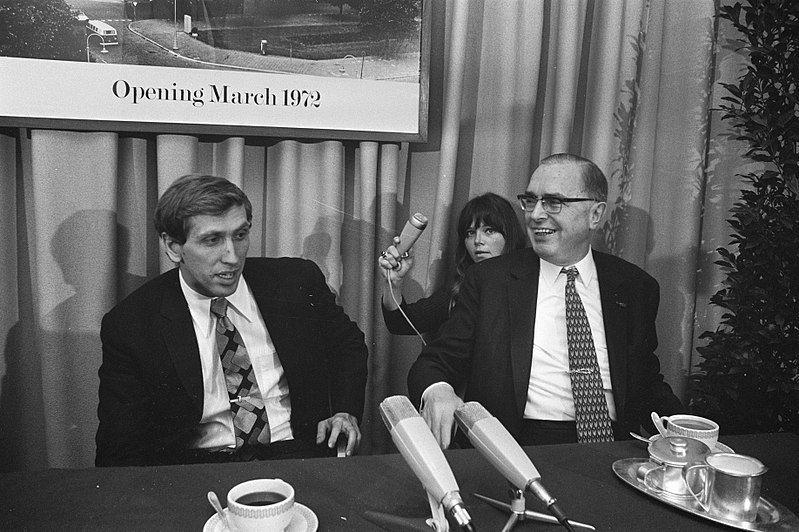Hey sports people, you always hear a lot about football, baseball, soccer, track and field, etc. However, I would like to talk to you guys about a game called chess. You might think that chess is boring, but when you start playing the game, it will start to be interesting to anyone who watches the game. As you know, chess became big not because it is a sport; rather it was played during a time when we were at war with a communist nation. Before the World Chess Championship in 1972, America and the Soviet Union were at war with each other over who would be the dominant power in the global economic sphere of influence.
They fought each other over many things. The Soviets beat us to space by sending the first spacecraft to revolve around the Earth (Sputnik), the first man to orbit in space, and the first woman to orbit. However, America was the first to put a person on the moon, and this along with many others proved to the world that capitalism is a better system than communism. This is where the 1972 World Chess Championship became a big deal. Until then, the Soviets had dominated the World Chess arena for 24 years, and there had not been any other World Champions besides the Soviets.
Enter Bobby Fischer; before he played in the World Chess Championship, he played in the Interzonal Tournament, where he won seven games in a row. After that he played in the Candidates tournament, which was a bracket match competition. He played Mark Taimanov and crushed him 6–0, expanding his winning streak to 13 games. Then he played Bent Larsen and defeated him 6–0, furthering his streak to 19 games. He won the next game against Petrosian and won 20 games in a row. However, he finally lost a game and drew the following three games. Then, he won the last four games with a score of 6.5 to 2.5 against Petrosian.
After this, he played against Boris Spassky, and the first game started off with Fischer playing black and Spassky playing white. The game was a Nimzo-Indian, and there was not much of an advantage as when it got to move 29 for black, the position was a draw. Although the white king on d3 was more active than the black king on f8, black had a very active bishop on d6 while the white bishop on c1 was blocked in by its own pawns and had less mobility. The audience expected that both players would agree to a draw in this position.
Before Fischer played his next move, he went up to the arbiter Lothar Schmid and complained to him about the cameras and the audience. He demanded that the audience be sent further away from where he and Spassky were playing and also for the cameras to film away from him. He demanded that the cameras should not have a film that is rolling and making noise. Lothar stated that he cannot do anything and suggested that Fischer keep playing. This is when Fischer made an interesting move.
On his 29th move, he played Bxh2 and people in the crowd were appalled by his decision. Fischer hoped that he could win the pawn with an advantage after 30. g3 h5 31. Ke2 h4 32. Kf3 h3 33. Kg4 Bg1 34. Kxh3 Bxf2. Here Fischer hoped that he could escape with his bishop to e1 and be a pawn with winning chances. However, he overlooked that white could play Bd2, trapping the bishop and no matter what move black could play, white was going to play Kg2 and attack the trapped bishop.
Fischer played 32.Kf3 Ke7, and the game continued 33.Kg2 hxg3 34.fxg3 Bxg3. Here white was up a piece, but black had two pawns. White was winning but there were chances for black to draw the game. However, Fischer played the incorrect 39th and 40th move and lost the game. Fischer refused to show up for the next game and Spassky won by forfeit since Iceland refused to meet his demands about the cameras and audience.
Well this was fun speaking to you all. Check back next week for more games from the 1972 World Chess Championship.
Bobby Fischer vs. the Soviet Union
By Jim Wang
|
March 26, 2019

